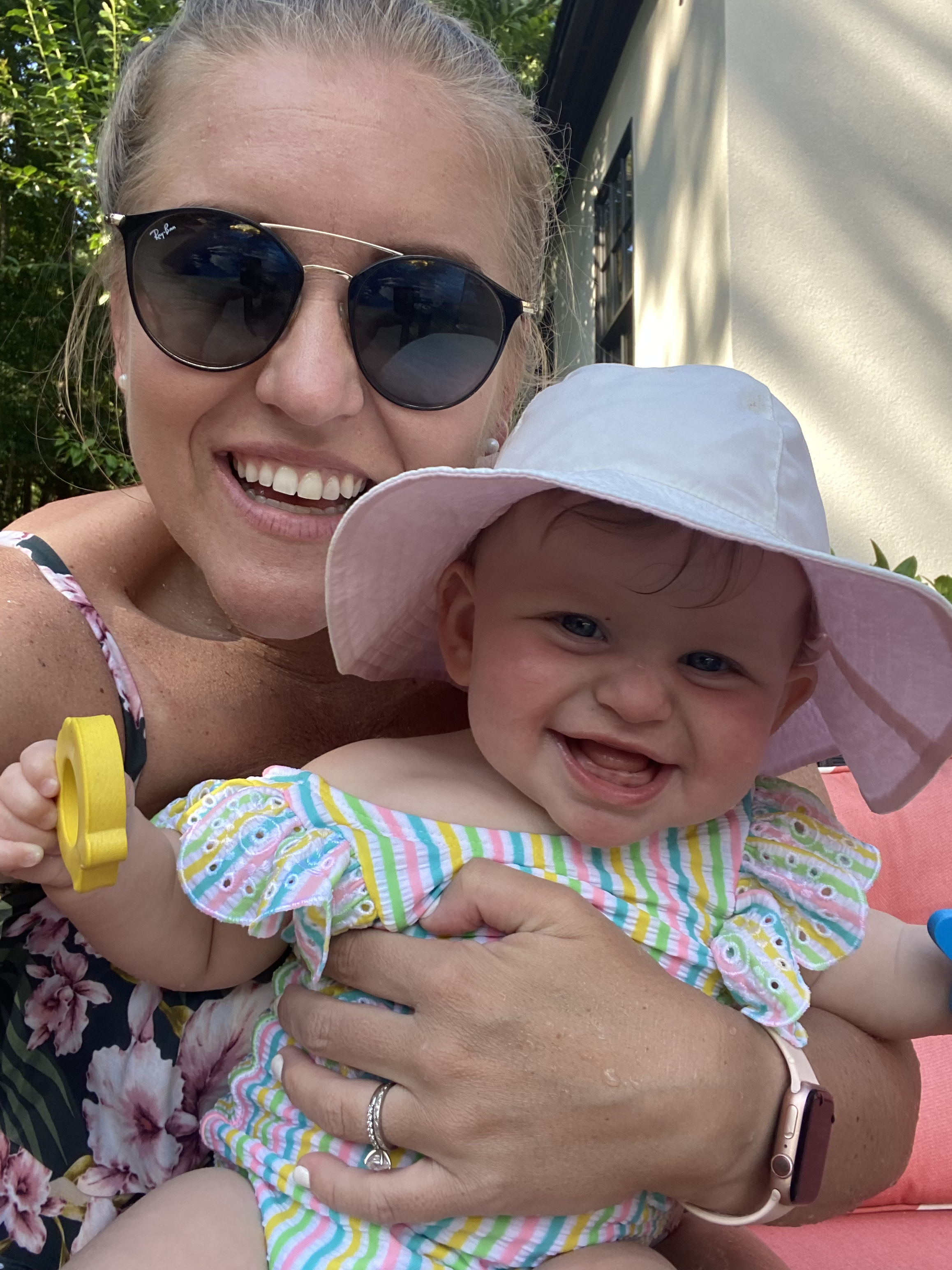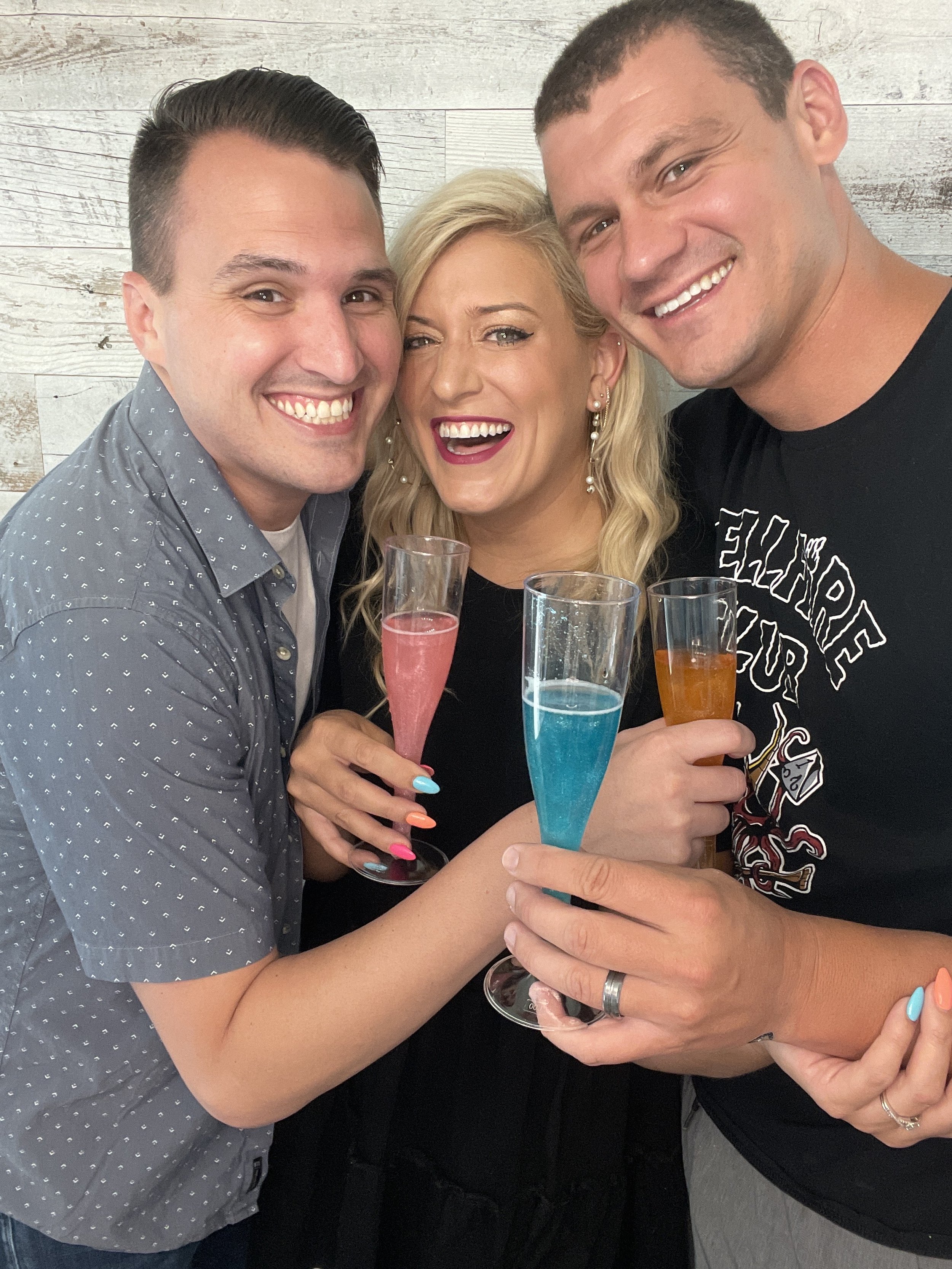Making the Work You Want to See
/Why photographer Marcia Colaundria was willing to sleep in her car to pursue her dream of being a photographer, and how she built her creative business by following a gut feeling.
It was the end of 2019 and Marcia Colaundria packed up her car in the driveway of her childhood home in Vero Beach to move back to Orlando, even though she had nowhere to live.
But her depression had gotten so bad that she knew she needed a change of scenery; living in her car seemed like a fine trade off.
So after too many late nights spent crying she finally threw all of her clothes into her trunk and drove to Orlando, hoping to find a way to take her career in professional photography to the next level, to fulfill the dream that sparked in high school, and step out in faith.
…
It all started in her high school photography class. While most kids were half asleep during a lesson about camera technology, Marcia was amazed: “You poke a hole on the side of a tin can, cover the hole with some tape, place a piece of film on the inside of that can, point the can at a subject, open the pinhole, close it quickly, the film is exposed, and then a picture is made!”
Marcia was enthralled with photography at the micro level, but she was already on track to work in healthcare.
But after one college biology class, she knew for sure: “This is not it.”
She transferred to another school to major in digital cinematography instead. “My parents were disappointed,” she shares, “me going from a steady track to an unstable track. But you know, you’ve got to live your life for yourself.”
All photos courtesy of Marcia Colaundria. See marciasportfolio.com for more
“That’s service to somebody.”
Marcia offered to take photos for anyone who needed it, and felt most at home when capturing artists, like the hip hop concert photos she took as a volunteer photographer for a hip-hop promotions company in 2012:
“I was shooting photos on-stage and off-stage, a kind of dance,” she remembers. “It was like I was floating in the midst of it; I didn't know what I was doing with my hands, but they were kind of just moving, changing the settings without me having to think.”
It was that feeling of flow.
And she loved how the artists lit up when she delivered the photos.
Creatives and artists sometimes question the worth of their work, wondering whether it’s frivolous, whether it matters, especially in dark or difficult times. But because of those early shoots, Marcia has always seen craft as a service: “To deliver something skillfully done, that’s service to somebody.”
After graduating college Marcia made money shooting weddings, which, as she puts it “was not a passion.” But it helped her start her creative business, and even though weddings weren’t what she’d dreamed of photographing, she still focused on doing her best, serving with her skills in every situation.
But when I ask her how it felt the first time she got paid for her photography, she shares honestly: “It didn’t feel good.
“It felt kind of scary. Because once I was doing it for money, there’s an expectation that it better be good because somebody gave me money for it. Prior to that, I was just doing a good job because I wanted to.”
She tried to forget she was getting paid and focused on service, on doing her best.
Although something shifted when she actually got paid for work she was passionate about, like the gig she did for hip hop artist Deraj (whose work has been featured on Apple, Disney, Hulu, and more), whom she met when doing the volunteering gigs.
For that first job she did for Deraj, he said, “I just want you to do your thing.” One artist to another, he let her follow her taste.
And once he saw the finished photos, he told her she needed to charge more.
Photo by Marcia, feat @deraj.
“You know you're really not a lazy person.”
She tried to do just that, but still needed to make ends meet by working hourly jobs at places in theme parks and in retail.
She hated working for someone else.
She’d get mad, scolding herself in the middle of a shift, saying, “You could literally be making twice this amount in one session with a client if you just were to put in the work.”
She struggled sometimes to do the work necessary to get more clients and move her business forward.
She used to just berate herself for being “lazy”, but learned there was often more beneath the surface of laziness.
“I think laziness is pretty much a fallacy,” she says.” “It's a result of something; something led up to it. When you're under heavy mental weight and you don't really know the reason, it can push you into a place of laziness.
“You think, how, why am I here? And you know you're really not a lazy person.”
She explains she was in a kind of denial in that season, experiencing but ultimately unaware of any mental health issues going on. She was “the strong one.” She couldn’t be struggling like that. She must just be “lazy,” she’d reason.
But really, she was struggling with depression, especially in Vero Beach. She’d moved back to help her parents with their church, but soon realized her hometown no longer felt like home. But to leave would mean to let go of many dependencies she’d been clinging to and trust in her faith in a way she never had before.
“I don't allow social media to tell me how worthy I am.”
But Marcia did move out of her parents’ house and to Orlando in January 2020, and lived in her car and crashed at friends’ houses.
She also started doing whatever photoshoots she could, taking headshots one day that paid for gas the next, renting rooms in public libraries and holding photography classes. She could’ve gotten a job of course, like applying for one at the McDonald’s where she often parked her car, but she was determined to stay focused on building her own business, knowing that she’d never fared well when she worked for someone else, always feeling like a “square peg in a round hole.” She wanted to carve out her own space instead.
She saved up and eventually found a place to live, through a couple who needed someone to house-sit. Then March 2020 happened, and suddenly there wasn’t anything to photograph.
But since starting her business she’d developed a lot of website and social media skills, and with so many needing to bring their businesses more online, they turned to her to ask for help, and another income stream was born, one that provided her business stability during a turbulent time.
Being consistent on social media also helped her find stability for her creative business, but it took a while for her to see it. “One day I’d be down in business because I would have gone a month without posting, but the day I post somebody reaches out. Finally I was like ‘Why isn't this clicking? Why aren't you doing this every single day?’” But she knew the answer: “My perfectionism and my imposter syndrome.”
She still struggles with those things, but tries to focus on authenticity, and now she says, “I don't allow social media to tell me how worthy I am.”
That’s helped her focus on social media as a place for business strategy and not self-worth.
And it’s paid off. Her business has been making a full time living since 2020. And while she’s grateful for the gigs that pay the rent, it’s the ones she does without thinking about money, the ones where she feels like she’s floating, that really keep her going, like the Black Is Poetry project she led in 2020.
She brought together a talented team of artists to shoot the Black Is Poetry project, a digital gallery series of photographs and poems.
“I wanted people to look at the photography,” she says of her dreams for the project, “and see the message without me having to say a word.”








































